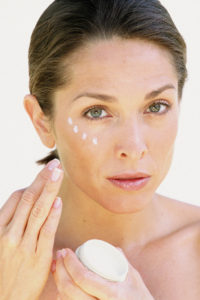Vitamin A has Anti-Aging Properties in Different Formulations

Better compliance and more regular use has been obtained with weaker concentrations of Vitamin A that are available in many over-the-counter products. These formulations are known as Retinol and contain a fraction of the strength of Retin-A concentrations. Such formulations usually contain other anti-oxidant compounds such as Vitamin E and others to create an alchemy of ingredients that are much better tolerated than prescription-strength retinoids. I used to have the perception that retinoids were ineffective and were merely piggybacking on the well-proven benefits of their much stronger and better known relatives. A marketing gimmick if you will, which is not an uncommon phenomenon in the cosmeceutical industry. However, recent studies have shown that retinol preparations have definite anti-wrinkling effects compared to similar skin topicals that did not contain them, even in older patients.
This new information suggests that the use of retinols does have a role to play in skin care. For those patients that have had problems in the past with Retin-A or are younger with minor wrinkling issues, retinol-containing products are a good place to start. Eventual tolerance to low-level pharmaceutical grade Retin-A may be acquired by several months of retinol use.
Dr Barry Eppley
Indianapolis, Indiana


